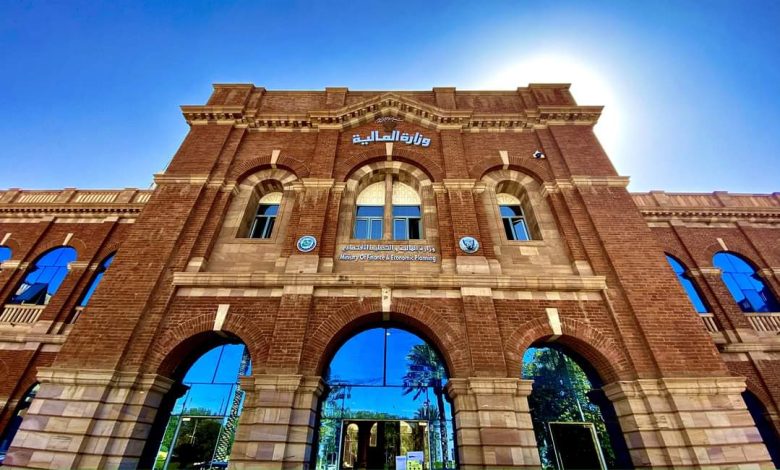Economic
The 2025 Budget: Multiple Scenarios

Report by Rehab Abdullah
Experts have expressed varied reactions to the 2025 budget following the Council of Ministers’ announcement of the technical committees’ approval of its features, directives, and objectives.
The Ministry of Finance and Economic Planning stated that the technical committees of the interim Council of Ministers had approved the 2025 fiscal year’s general budget framework, directions, and goals.
The Undersecretary of the Ministry of Finance, Abdullah Ibrahim, announced that the ministry had submitted the budget’s features and directives to the interim Council of Ministers for approval. Following his presentation at the technical committees’ meeting chaired by the Council of Ministers, he noted that the committees had provided feedback that would be incorporated before forwarding the draft to the ministerial sectors for approval and implementation.
The “War Budget”
The 2024 budget, termed the “war budget” and labeled by experts as an “emergency budget,” faced numerous obstacles due to the ongoing conflict between the Rapid Support Forces and the Sudanese Armed Forces.
Finance Minister Jibril Ibrahim described the budget as a war-focused one, questioning the government’s ability to fund both the war and salaries amid Sudan’s worsening economic conditions.
Budget Priorities
Economic expert Dr. Mohammed Al-Nayer emphasized the distinct nature of wartime budgets compared to those during peacetime.
Speaking to Al-Ahdath newspaper, Al-Nayer explained that a war budget prioritizes employee compensation (salaries) for both central and state units. He highlighted a promise from the Ministry of Finance to fully implement employee compensations by 2025, noting that many units had previously failed to achieve 100% implementation, with some states recording significantly lower execution rates.
General Framework
Al-Nayer stressed the importance of coordination between the Ministry of Finance and the states to prepare a comprehensive budget for secure regions only. He added that regions like Darfur, which face significant challenges and instability, may require budget preparation after military operations have secured the areas.
He clarified that the current directives and general features of the 2025 budget merely outline the government’s priorities for the year, serving as guidelines for ministries and central units to prepare their budgets.
Differences Between War and Peace Budgets
Al-Nayer pointed out that wartime budgets primarily focus on Chapter One (employee compensations) and then on military and security capabilities. Development priorities are minimal, focusing instead on stabilizing economic indicators such as exchange rates, inflation, poverty, and unemployment. Development plans, particularly those involving non-financial assets, are often deprioritized or inadequately funded.
Development Budget Constraints
Al-Nayer noted that even in peacetime, Sudan’s budgets have historically allocated minimal resources to development, typically only 5-10% of the total budget. He described this as a distorted approach, asserting that under wartime conditions, development spending would likely cease altogether. Instead, the focus would remain on employee salaries and security expenditures to ensure national stability, with highly frugal public spending.
Tax Increases
Banking expert Dr. Omar Mahjoub predicted that the 2025 emergency budget would include a series of tax hikes and measures to maximize government revenues from the gold sector. He also anticipated a focus on securing international grants and reducing government spending.
Speaking to Al-Ahdath, Mahjoub stated that wartime budgets prioritize war costs, including defense allocations, employee wages, and operational expenses. They may also cover social assistance programs and infrastructure projects, such as maintaining airports and alternative facilities.
Mahjoub underscored the need for coordination between fiscal and monetary policies to curb inflation and stabilize the exchange rate. He cautioned against expecting developmental projects or plans to reduce trade deficits and public debt under such circumstances.
Budget Challenges
Economic expert Dr. Haitham Mohammed Fathi argued that since 2019, and particularly in 2023 and 2024, the government has struggled to cover deficits by increasing public revenues. This has included introducing new tax categories, raising existing taxes, improving collection methods, combating tax evasion, and relying on investment revenues.
Other measures have included curbing public expenditure and resorting to deficit financing through monetary expansion and domestic or foreign loans.
However, Fathi noted that these efforts to reduce deficits largely fall outside the Ministry of Finance’s control due to security and political instability, alongside economic losses in both public and private sectors that have undermined revenue collection.
He also highlighted significant challenges in financing options, with the government increasingly relying on central bank loans, which disrupt economic balances.
Economic Policy Struggles
Fathi criticized the absence of a stable central bank strategy during the crisis. He noted that erratic decisions exacerbated the devaluation of the Sudanese pound. The war has caused a severe production decline, reduced revenues, and increased military expenditures. Exports have plummeted, while imports have surged, further destabilizing the economy.



